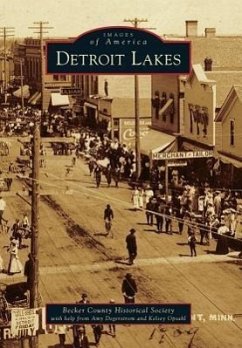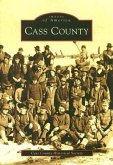Detroit Lakes, Minnesota, was incorporated in 1871 as the village of Detroit. Detroit became a boomtown in the late 19th century because of the vast supply of timber that dominated the landscape of northwest Minnesota at the time. The population grew by leaps and bounds, and by 1900 the census recorded 2,060 residents. In 1926, the US Postal Service officially changed the town's name to Detroit Lakes in order to avoid confusion with Detroit, Michigan. The lush landscape of lakes and rivers created a natural vacation destination, and tourism pioneers like John K. West began to market to the newly moneyed industrialists of the Gilded Age, promising steamboat transportation and boardwalks to the shoreline. Today, Detroit Lakes remains a vibrant city with thriving resort and business communities. It is the heart of lakes country and continues to provide a welcoming atmosphere for visitors and residents alike.
Hinweis: Dieser Artikel kann nur an eine deutsche Lieferadresse ausgeliefert werden.
Hinweis: Dieser Artikel kann nur an eine deutsche Lieferadresse ausgeliefert werden.








